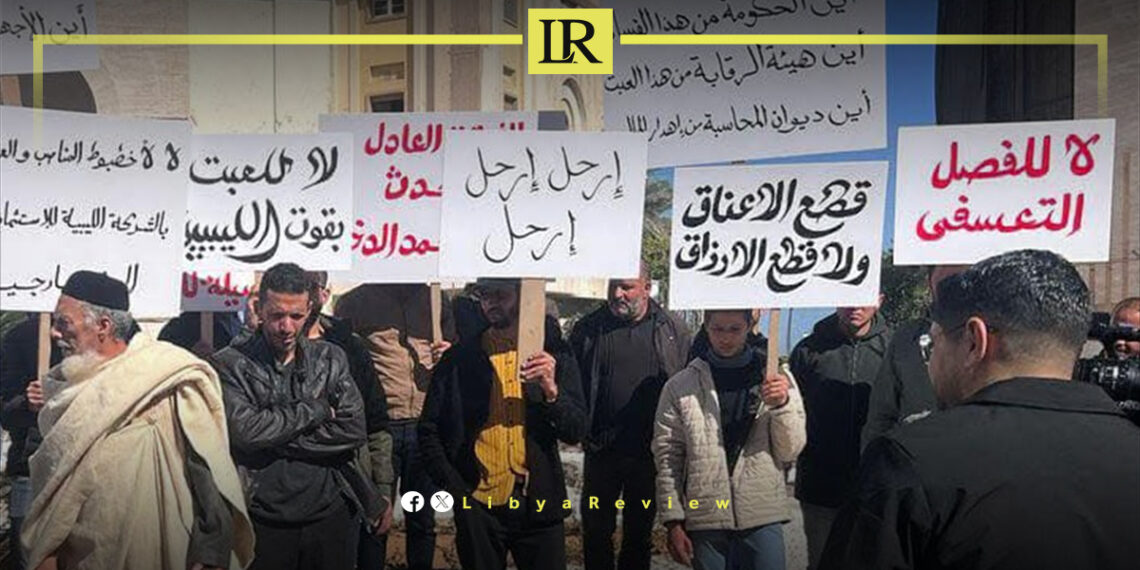On Saturday, employees of the Libyan Foreign Investment Company (LAFICO) gathered in front of the company’s headquarters in Tripoli, protesting against what they described as systemic corruption and abusive management practices.
The demonstrators expressed frustration over financial mismanagement, administrative violations, and unjust treatment within one of Libya’s most prominent state-owned investment firms.
They also held banners demanding accountability, calling for an end to corrupt practices that have undermined the company’s operations and threatened their job security.
They accused LAFICO’s leadership of exploiting its financial resources, engaging in questionable dealings, and failing to protect employees’ rights. Their demands included government intervention, transparency, and immediate action to hold corrupt officials accountable.
The demonstration follows recent corruption scandals involving LAFICO’s subsidiaries. In November, Libya’s Attorney General’s Office issued arrest warrants for the director of OYA Company and an official from the Hospitality Development Company, both of which are owned by LAFICO, over charges of financial corruption and embezzlement.
These developments have further eroded public trust in Libya’s sovereign investment institutions, with growing calls for reforms and stricter oversight.
Employees also questioned why the Libyan government and regulatory bodies have remained silent on the corruption allegations, insisting that state oversight agencies take immediate steps to investigate financial irregularities and protect workers’ rights.
The lack of accountability, they argued, has enabled corruption to flourish unchecked, harming the country’s economic stability.
With Libya’s ongoing efforts to rebuild its economy and attract international investment, corruption within key financial institutions poses a significant challenge. Economic experts warn that without meaningful reforms and enforcement of anti-corruption measures, Libya’s investment sector will continue to struggle, limiting its ability to generate economic growth and job opportunities.
As protests escalate and pressure mounts on Libya’s leadership to prioritize accountability, the question remains: Will this latest public outcry lead to real action, or will it become yet another case of unresolved corruption within Libya’s financial system?


